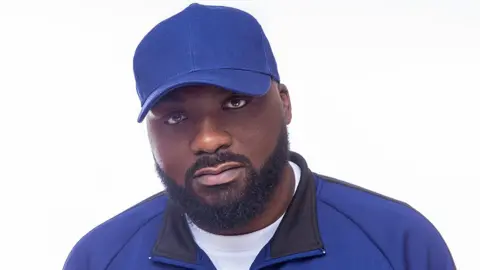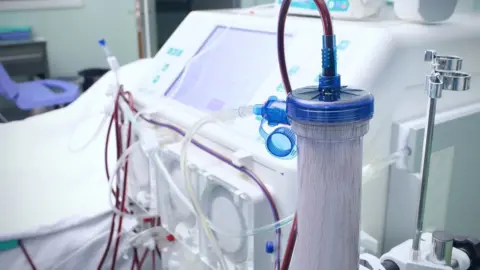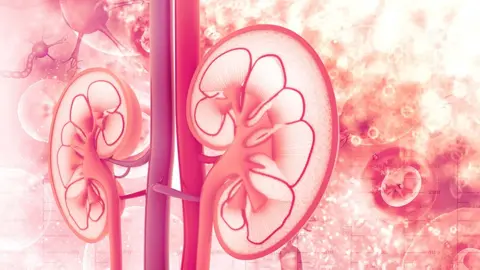1Xtra's DJ Ace needs new kidney
 BBC
BBCBBC Radio 1Xtra DJ Ace says he's "just trying to get on with life" as he waits for a new kidney.
The presenter has been having dialysis sessions three times a week for about 18 months after kidney failure.
And he says more people from black and minority ethnic backgrounds should donate their organs.
NHS Blood and Transplant figures show that 121 people from BAME backgrounds donated their organs after they died last year.
That's a record high, but still far fewer than needed.
'It is a big part my life'
Although he's been on the waiting list for a kidney for 18 months, it's not something Ace has spoken about a lot in public.
"It is a big part my life and I really do want to get a kidney as soon as possible. But I just don't want it to define who I am," he tells Newsbeat.
"I don't want to necessarily be seen as the guy waiting on the kidney. I'd rather you see me as Ace the DJ or presenter first."
But Ace, who presents the mid-morning show on BBC Radio 1Xtra, says he's "tired of the dialysis session" because of the impact it has on him.
 Getty Images
Getty ImagesKidney dialysis involves being hooked up to a machine which filters your blood - the job the kidneys are supposed to do.
Ace has dialysis three times each week - and each session lasts at least four hours.
He's had sessions while doing his job abroad too - in Ibiza and the US.
"As you can imagine, in another country like America, that's like $800 (£648) for one session of dialysis," he says.
The DJ says waiting for so long is partly why he went public - but he also saw it as an opportunity to raise awareness of the issue.
"It's great that the conversation is starting to be had and I think I don't mind being the face of it for now."
Why does ethnicity matter in organ transplants?
It comes down to getting somebody to match your organs as close as possible.
People of the same background are more likely to share blood types and tissue types - which means your body is more likely to accept an organ without issues.
Most black and minority ethnic people receive organs from white people, but they're less likely to be a closer match.
But there are some cultural reasons why organ donation rate is lower in BAME communities.
"There are myths and fears and taboos within the black community," says co-founder of the African Caribbean Leukemia Trust (ACLT), Orin Lewis.
These include interpretations of the Bible or the Quran, a lack of trust in the system or simply not understanding why their organs are more valuable to their own race, he says.
However, Orin adds that talking to people and explaining the role they can have does make a difference.
"Most people will actually say: 'Yeah, I would seriously consider because I realise the power of my ethnicity to saving someone's life'."
 Getty Images
Getty Images"Before I had this situation, I wasn't a donor," says Ace.
"I know this is something that we don't really talk about - we shy away from it."
He understands "it's an awkward conversation to have".
"I don't want anybody to go under the knife for me or have to feel like they have to live with one less organ for me," he says.
But he adds: "If I'm not here, like, how is that going to affect the people that love me the most?"


